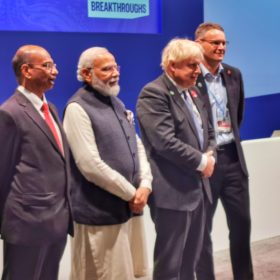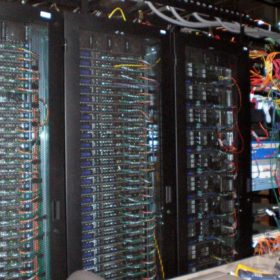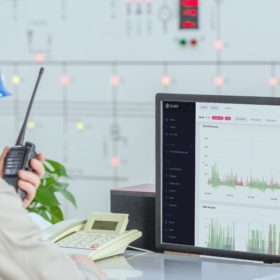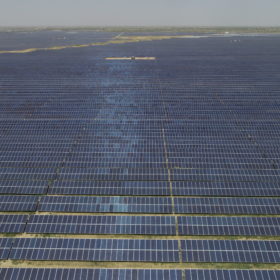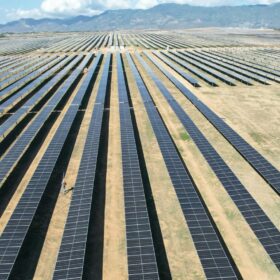World’s first transnational solar power grid network launched in Glasgow
The India and UK-led global supergrid program seeks to connect 140 countries to round-the-clock green and renewable power.
Driving carbon neutrality in the telecom industry
The information and communication technology (ICT) and telecom industry is now equipped with a sophisticated range of solutions to meet the enhanced demand for high-speed data and digital services in a green and energy-efficient manner.
Silicon metal and aluminum industries hit by China power shortages
A combination of booming demand for coal-fired power and a shortage of the black stuff – exacerbated by a political row with Australia – have forced up prices to the extent fossil fuel generators are making a loss on every unit of electricity they produce. pv magazine‘s Vincent Shaw considers the potential solutions.
Transmission system expansion, digitalization critical to Southeast Asia’s grid modernization
To achieve its sustainability targets, Southeast Asia will require integrated strategy and execution across generation, transmission, and distribution, as well as planning that balances both capital and operational expenditures. The regional power industry will need partners who can merge data analytics with engineering expertise to deliver timely and actionable insights that realize the full potential of assets and facilities.
Siemens deploys smart metering technology for Tata Power-DDL customers
Siemens has deployed its EnergyIP meter data management system for over 2,00,000 smart meters in North Delhi, enabling the timely and accurate collection of electricity meter data digitally. The advanced metering infrastructure will pave the way for the deployment of Smart Grids across the country.
The substantial sustainability benefits of smart meters
Power generated by renewable sources and corresponding action taken by business layers is not predictable. So it’s imperative that the latest controls are leveraged in the service of smart grids.
One Nation, One Grid, One Price
The Indian power sector is set for a revolution with the proposed market-based economic dispatch (MBED) mechanism. MBED aims to establish a uniform pricing framework that prioritizes the least cost and most efficient generators while backing down more expensive ones, thereby creating a national merit order.
Earth sciences ministry revisiting weather forecast approach to suit solar sector needs
The Ministry of Earth Sciences will strengthen meteorological forecasting activities in sync with the demands of the solar and wind energy sector stakeholders. It is already working on a five-year (2021-26) plan, said M. Rajeevan, Secretary, MoES, at a virtual workshop conducted recently.
ION Energy raises $3.6 million in latest funding round
The battery management solution provider will use the funds to grow its team, invest in product development, and expand the software business in North America and Europe.
Flagging off the energy transition decade
With the draft National Electricity Policy (NEP) 2021, India is providing the right policy direction for this decade of the energy transition. Yet, there is room for further improvement.
